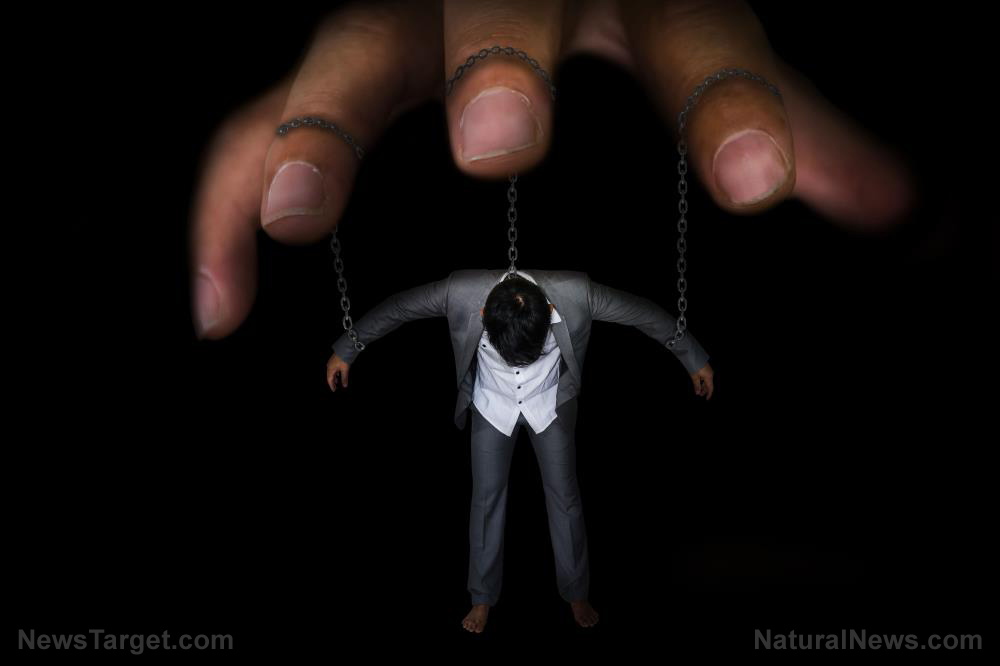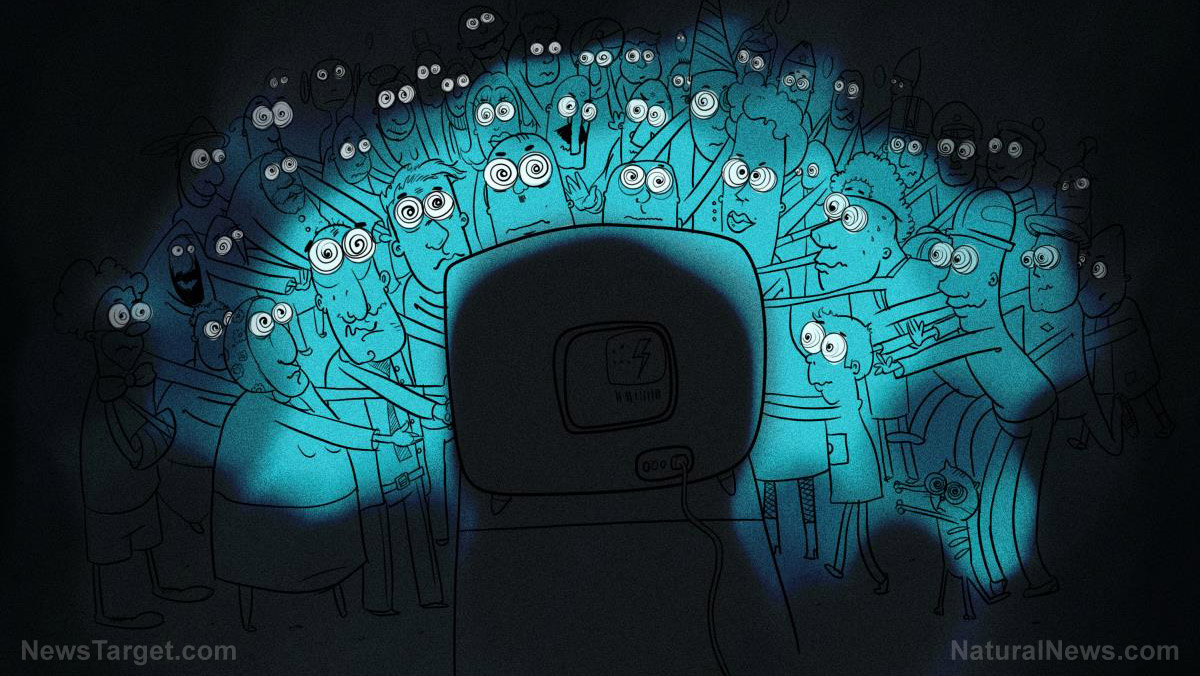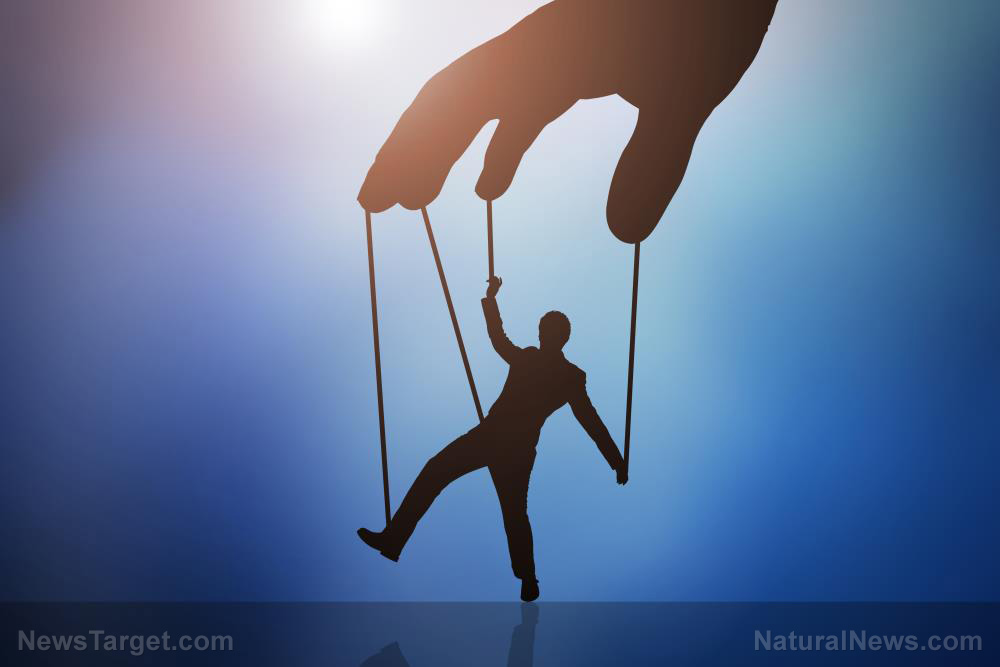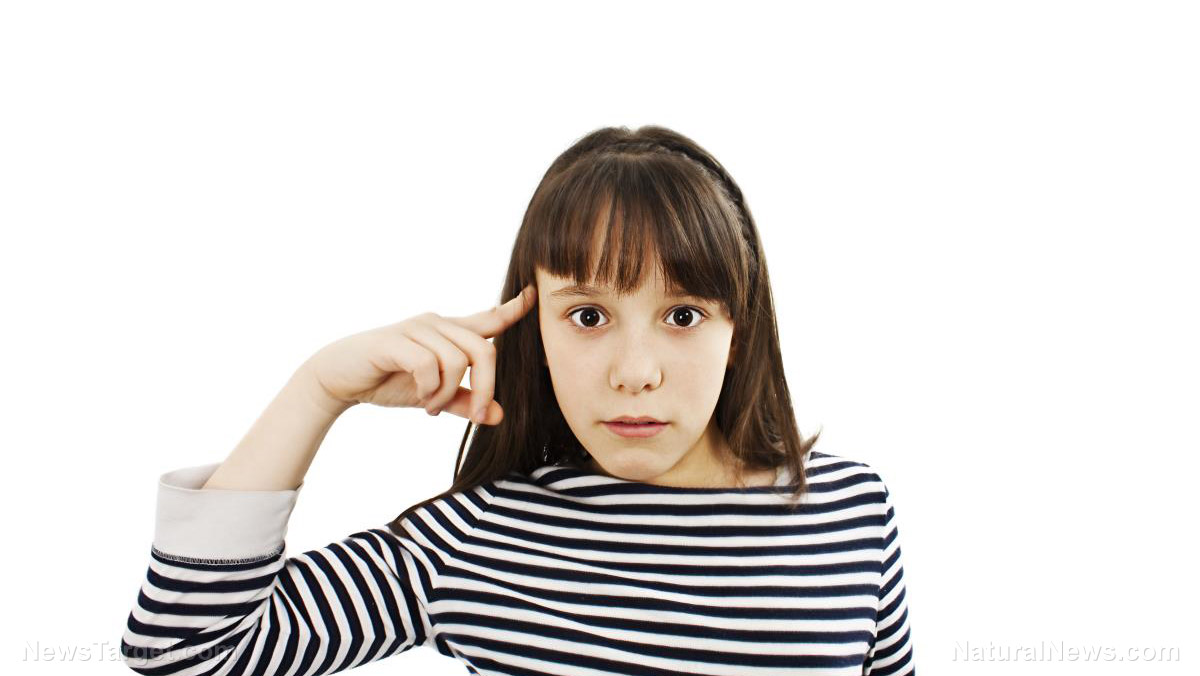Experts warn of mass psychosis due to COVID lies
11/03/2021 / By Matthew Davis

A number of mental health experts warned that the blatant panic-mongering during the Wuhan coronavirus (COVID-19) pandemic have serious psychiatric effects on the population.
In an Evie Magazine article last year, S. G. Chea discussed the emergence of mass psychosis caused by delusional fear of COVID-19. Chea wrote that the young and the healthy are being terrorized by the chokehold of irrational fear despite statistics pointing to low fatality rate among children and young adults.
“Instead of facing reality, the delusional person would rather live in their world of make-believe. But in order to keep faking reality, they’ll have to make sure that everyone else around them also pretends to live in their imaginary world. In simpler words, the delusional person rejects reality. And in this rejection of reality, others have to play along with how they view the world – otherwise, their world will not make sense to them. It’s why the delusional person will get angry when they face someone who doesn’t conform to their world view,” Chea wrote.
Dr. Mark McDonald, psychiatrist and medical legal expert, said in December 2020 that “the true public health crisis lies in the widespread fear which morphed and evolved into a form of mass delusional psychosis.”
Epidemic of madness during “plandemic”
Mass psychosis is defined as “an epidemic of madness” that occurs when a “large portion of society loses touch with reality and descends into delusions.” This happened during the witch trials of the 16th and 17th centuries.
It’s one of the reasons why you’re seeing so many people who would happily approve the silencing of medical experts whose views contradict the World Health Organization (WHO) or Centers for Disease Control and Prevention (CDC) guidelines. Obeying the rules becomes more important than questioning if the rules were legitimate to begin with.
After 19 months of abnormal pandemic life, the data are proving that McDonald is correct.
In the U.K., psychiatric referrals for first-time psychotic episodes have skyrocketed. The Guardian reported that “cases of psychosis have soared over the past two years in England as an increasing number of people experience hallucinations and delusional thinking amid the stresses of the COVID-19 pandemic.”
There was a 29 percent increase in the number of people referred to mental health services for their first suspected episode of psychosis between April 2019 and April 2021, National Health Service (NHS) data shows. The rise continued throughout the spring, with 9,460 referred in May 2021 – up 26 percent from 7,520 in May 2019.
Brian Dow, deputy chief executive of Rethink Mental Illness, noted that the number of mental health referrals remains so high. He called the outside of his home or office as “outdoor insane asylum,” where he must assume “that any person that I run into is insane unless they prove otherwise.” Dow said additional funding for mental health and social care must be given to frontline workers to help meet new demands.
To address this, Rethink Mental Illness is urging the government to invest more in early intervention for psychosis to prevent further deterioration of people’s mental health from which it could take years to recover. It says the statistics provide some of the first concrete evidence to indicate the significant levels of distress experienced across the population during the pandemic.
According to a spokesperson for the British Department of Health and Social Care, the agency will expand the NHS mental health services budget by £2.3 billion ($3.1 billion) per year by 2023/2024. They’ve also added £500 million ($691 million) to the 2021 budget to provide services to those hit hardest by pandemic measures.
Worldwide increase in anxiety and depression
In another study, lead author Damian Santomauro of the University of Queensland and his team found that the rates of anxiety and depression worldwide increased dramatically.
According to the team, COVID pandemic resulted in an additional 76 million cases of anxiety and 53 million cases of major depressive disorder – over and above annual norms, with women and younger individuals being disproportionally affected.
“We believe that is because women are more likely to be affected by the social and economic consequences of the pandemic. Women are more likely to take on additional care and household responsibilities due to school closures or family members becoming unwell,” Santomauro said.
“Women also tend to have lower salaries, less savings, and less secure employment than men, and so are more likely to be financially disadvantaged during the pandemic. Youth have been impacted by the closures of schools and higher education facilities, and wider restrictions inhibiting young people from peer interactions.”
As noted by McDonald, adults are inflicting emotional trauma on an entire generation. “The widespread insanity on display among adults can have severe and lasting effects on children as they grow up,” he said.
McDonald stressed that the mental states of the children he’s treated during this pandemic are far worse than what he’s used to seeing in these age groups. “This tells us the trauma inflicted by pandemic measures is very serious.” (Related: Experts warn impact of coronavirus pandemic on children’s mental health is increasingly alarming.)
Adults have twisted irrational fear into a virtue, which is doubly tragic and wrong. Wearing a mask has become a way to demonstrate that you’re a “good person,” someone who cares about others, whereas not wearing a mask brands you as an inconsiderate lout, if not a prospective mass murderer, simply by breathing.
“By encouraging us to remain in fear and allow it to control and constrain our lives, the fear has become so entrenched that anyone who says we need to be fearless and fight for our freedoms is attacked for being both stupid and dangerous,” McDonald said.
Follow Pandemic.news for more news and information related to the coronavirus pandemic.
Tagged Under: Anxiety, big government, coronavirus, covid-19, delusion, depression, Fear, insanity, mental health, Mind, mind body science, panic mongering, Plandemic, propaganda, psychiary, psychosis, public health crisis
RECENT NEWS & ARTICLES
COPYRIGHT © 2017 PSYCHIATRY NEWS



















